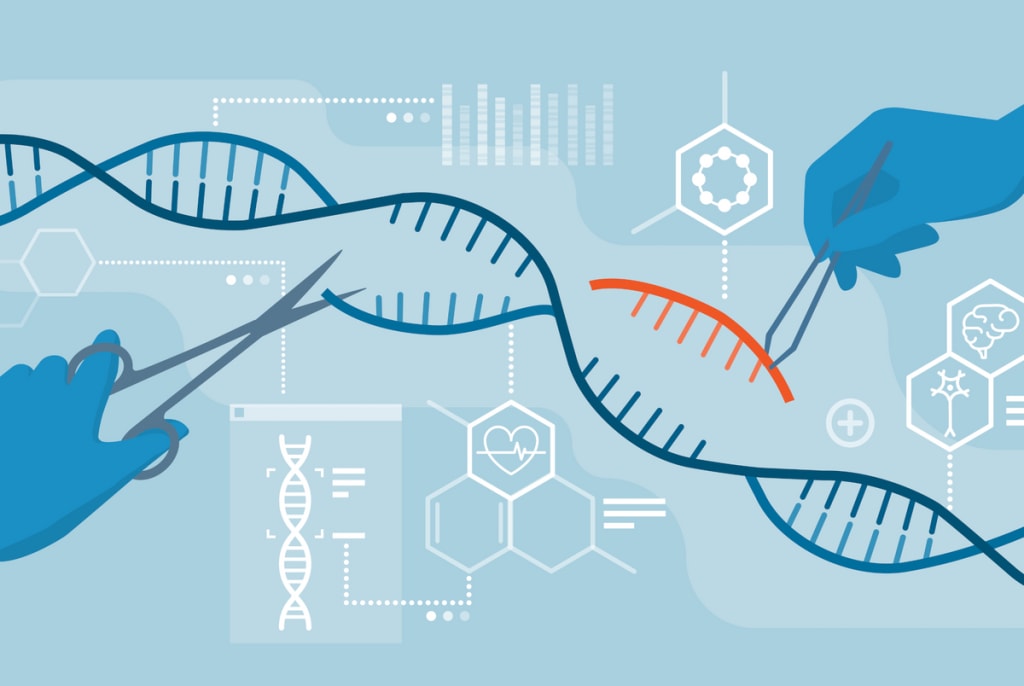Human Gene Editing – Good or Bad ?
Balancing Hope and Responsibility

The rapid advancement of genetic engineering technologies has ushered humanity into a new era of possibility and profound ethical questions. At the heart of this scientific revolution lies human gene editing, with CRISPR-Cas9 as its most celebrated tool. This groundbreaking technique offers the ability to precisely modify DNA, fueling hopes of eradicating hereditary diseases and enhancing human potential. However, it also unveils a Pandora's box of ethical dilemmas, requiring careful navigation between the potential for good and the risk of unintended consequences.
**The Promise of Gene Editing**
Gene editing's most compelling promise is the potential to eliminate hereditary diseases. Conditions like cystic fibrosis, Huntington's disease, and sickle cell anemia, which have plagued generations, could be eradicated at their root. This offers hope not only to the afflicted but to their families, who bear the emotional and financial burdens of these diseases.
Furthermore, gene editing might hold the key to augmenting human abilities. By fine-tuning genetic traits, we could potentially enhance physical strength, intelligence, or resistance to common ailments. This opens up new frontiers in human potential and challenges traditional notions of human limitations.
**The Ethical Tightrope**
Amidst this tantalizing potential, ethical concerns loom large. One of the foremost questions is whether we should play "genetic god" and manipulate the building blocks of life. Some argue that such interventions infringe upon nature's order and tamper with the essence of humanity. They fear that we risk losing our humanity by treating our genes as a customizable menu.
Moreover, gene editing isn't without its pitfalls. Off-target mutations, where edits occur in unintended locations in the genome, can lead to unforeseen health risks. These unintended consequences underscore the need for cautious and precise techniques. The question of safety remains paramount.
**Designer Babies and Genetic Inequality**
The notion of "designer babies" is one that sparks intense debate. If we can select genes for desirable traits, will we inevitably create a genetic elite? Concerns about exacerbating social inequality based on access to genetic enhancements raise questions of justice and fairness.
Will we find ourselves in a world where those with financial means can afford genetic upgrades, while others are left behind? This ethical dilemma resonates with broader discussions about equity and access to healthcare and technology.
**Regulatory and Moral Frameworks**
In response to these ethical challenges, regulatory and moral frameworks are emerging. Many countries have implemented or are considering guidelines to govern human gene editing. These guidelines aim to strike a balance between promoting beneficial research and preventing unethical applications.
Ethical debates around gene editing often draw from principles like autonomy, beneficence, and non-maleficence. These principles help to guide discussions on consent, the potential benefits and harms, and the moral responsibility of scientists and policymakers.
**The Way Forward**
As we stand at this moral crossroad, it's clear that human gene editing is a double-edged sword. Its potential for good is matched only by its potential for harm. Therefore, a cautious, transparent, and inclusive approach is essential.
Scientists and policymakers must collaborate to ensure rigorous safety standards and equitable access to gene editing technologies. Public engagement and education are equally crucial to fostering responsible use and shaping the ethical landscape.
In conclusion, human gene editing is a frontier where the boundary between good and bad is remarkably blurry. The promise of eliminating hereditary diseases and unlocking human potential is tempered by concerns about unintended consequences, designer babies, and genetic inequality. The ethical and moral frameworks we establish today will shape the path forward. Ultimately, the question of whether human gene editing is a boon or a bane hinges on how we navigate this profound ethical crossroad.





Comments
There are no comments for this story
Be the first to respond and start the conversation.